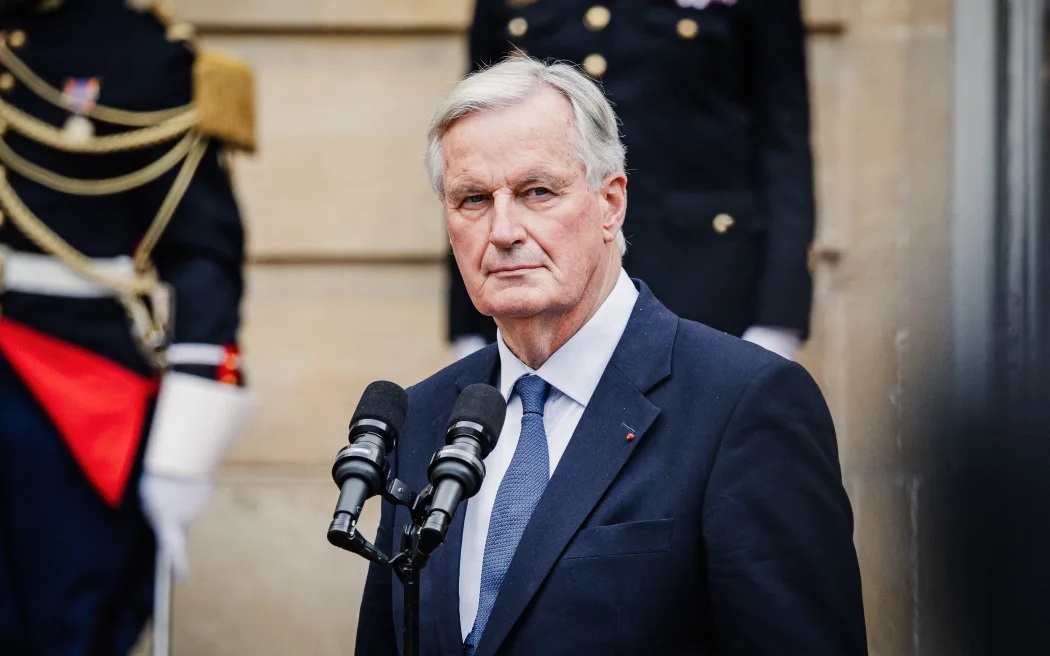France has dropped a divisive electoral reform in New Caledonia that triggered months of violent unrest and stoked concern across the region about Paris’ attitude towards its Pacific territories.
French Prime Minister Michel Barnier said in his inaugural address to the national assembly on Tuesday that plans to “unfreeze” the electoral roll would not be sent to the joint meeting of parliament for ratification.
Critics of the amendment said the enfranchisement would have given the vote to tens of thousands of French immigrants to the Melanesian island chain and created a significant obstacle to the autonomy aspirations of indigenous Kanak people.
“A new period must now begin, devoted to the economic and social reconstruction of New Caledonia,” he said.
The unrest that erupted in May is the worst outbreak of violence for decades in New Caledonia, leading to 13 deaths and leaving the economy on the brink of collapse.
Damages are estimated to be at least 1.2 billion euros (US$1.3 billion), with some 35,000 people out of a job.
Barnier said provincial elections would be postponed from Dec. 15 until late 2025.
“I am aware of the suffering and anguish felt by the people of New Caledonia and I want to reiterate that the state and my government will be at their side,” Barnier said.
The speech drew mixed reactions from New Caledonian lawmakers on Wednesday.
Kanak MP Emmanuel Tjibaou – elected in July as the first pro-independence politician to the lower house in nearly four decades – said it is a “sign” that the French state is “taking its responsibility for ending the crisis and resuming institutional discussions.”
“For the moment, I have heard the words, I am waiting for action,” Tjibaou told a press conference after the address.
Loyalist MP Nicolas Metzdorf, the representative for New Caledonia’s 1st constituency in the national assembly, said Barnier’s speech was “disconnected from reality” and he expressed disappointment that no financial aid was announced.
“The prime minister does not grasp the gravity of the situation on the ground,” Metzdorf was quoted by broadcaster Nouvelle-Calédonie la 1ère.
Philippe Gomes, the leader of a moderate loyalist Calédonie Ensemble and former lower house MP, said the “sword of Damocles that prevented political dialogue” had been lifted. He is part of a bi-partisan delegation in Paris seeking billions of euros from the government to help rebuild the territory.
Just over three weeks after his appointment by President Emmanuel Macron, Barnier’s speech detailed his roadmap focussing on the country’s troubled economy but devoted a considerable portion of it to France’s overseas territories.
He said the government would also soon send an inter-ministerial dialogue mission to New Caledonia led by presidents of the national assembly and the senate, Yaël Braun-Pivet and Gérard Larcher.
France’s handling of the pro-independence riots that engulfed the capital of Noumea has reinforced regional perceptions that it is an out-of-touch colonial power.
Paris has deployed nearly 7,000 soldiers, police and gendarmes to New Caledonia since May, a security build-up not seen since the Kanak revolt in the 1980s that only ended with the promise of an independence referendum.
The 18-member Pacific Islands Forum endorsed the terms of reference for a high-level “Troika-plus” fact-finding mission last month, though it is unclear when exactly it will take place.
Two weeks ago French security forces shot dead two Kanaks while trying to execute arrest warrants for the alleged leaders of the recent unrest.
New Caledonia voted by modest majorities to remain part of France in referendums held in 2018 and 2020 under a UN-mandated decolonisation process. Three votes were part of the Noumea Accord to increase Kanaks’ political power following deadly violence in the 1980s.
A contentious final referendum in 2021 was overwhelmingly in favor of continuing with the status quo. However supporters of independence have rejected its legitimacy due to very low turnout – it was boycotted by the independence movement – and because it was held during a serious phase of the COVID-19 pandemic, which restricted campaigning.














